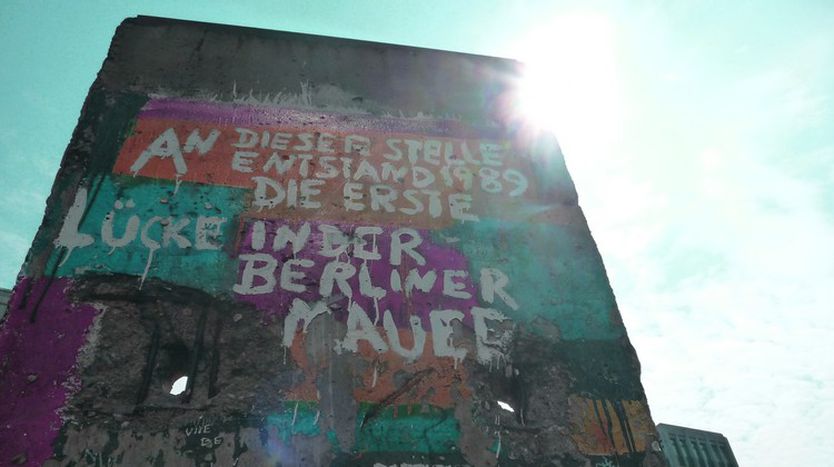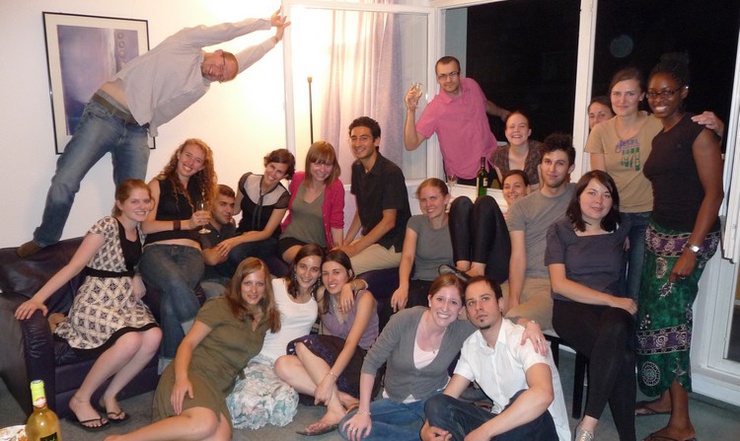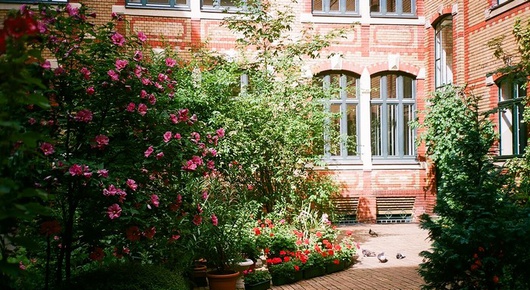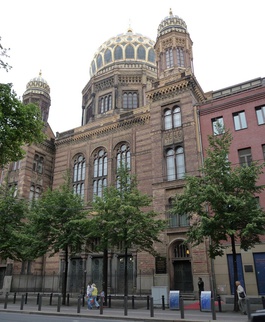
Leo Baeck summer university: ‘Berlin, so similar to Tel Aviv, my home town’
Published on
Translation by:
 Kate Stansfield
Kate Stansfield
At the crossroads of migratory flows and in a city so full of history, every year young people reflect on their Jewish identity since the European post-war period. Report
What do 25 twenty to thirty-year olds from the four corners of Europe, the United States and Israel, gathering one summer in Berlin, have in common? It is not just the dazzling attraction of the German metropolis that has brought them here these past two years. It is a new summer university, created in 2007, hosted by the prestigious Humboldt university in Berlin. A six-week programme on the following: how can we characterise Jewish life and identity between 1945 and the present day?

Translatlantic initiative
In the beginning, it was funding from the Marshall Plan (for the reconstruction of Europe after the second world war) that allowed the German government to create translatlantic exchange programmes between German and American students. At the Leo Baeck summer university (LBSU), the original aim was to fill the gap affecting the vast majority of Jewish student programmes in the United States and even in Germany: the belief that, after 1945, we can close the book.
Yet that would be to disregard post-war Jewish life in the refugee camps and the some 15,000 Jews who chose to settle in Germany. The second generation, born after 1945, is confronted with their parents' dilemma, that of having raised them in the ‘country of the murderers’. This date is the starting point used by the LBSU, from which a new Jewish life in Germany is developing.
Jewish to Turkish minorities
 That is why such a programme had a duty to welcome a larger spectrum of students, to expand the America-Germany partnership to the countries of eastern Europe and to Israel. At a time when the massive immigration of the Jews from the former USSR has allowed the Jewish community in Germany to triple in size within a few years, and to become the third largest in Europe (with approximately 150, 000 people), questions raised by the immigration from the former soviet union to Germany form an integral part of the debate on European migration and the integration of new European Union member states.
That is why such a programme had a duty to welcome a larger spectrum of students, to expand the America-Germany partnership to the countries of eastern Europe and to Israel. At a time when the massive immigration of the Jews from the former USSR has allowed the Jewish community in Germany to triple in size within a few years, and to become the third largest in Europe (with approximately 150, 000 people), questions raised by the immigration from the former soviet union to Germany form an integral part of the debate on European migration and the integration of new European Union member states.
The diversity of the Jewish community in Germany perfectly represents the primary impetus of the LBSU. ‘Our aim was to create a platform for discussion about different Jewish identities in Germany, such as they exist beyond the official community,’ explains Anna Held, the programme organiser. ‘To study the extent to which the Americans, Israeli people or those from the former soviet bloc countries who live in Germany play a role in this redefinition of identities.’
Debates on Jewish identity in Germany also allow us to reflect upon the relationships between minorities, such as the Turkish minority in Berlin for example, and the rest of society. And to force a reaction from the students; ‘I was disappointed to find out that the Jewish community in Germany is reluctant to improve relations with the Muslim community,’ confesses Sheer from Israel.
Why Berlin?
 Today, the Jewish community in Berlin is the fastest-growing in the world. However, you can hardly say it is recognised at international level. ‘In the United States and Israel, two countries in which I hold citizenship, there is little discussion of meaningful Jewish life happening in Europe, let alone in Germany,’ Joseph claims. Which explains the surprise of certain students: ‘Before the programme, I didn’t even know there was a big Jewish community in Berlin. And speaking of Berlin in general – I didn’t expect such an international place, but nevertheless very similar to my hometown, Tel Aviv,’ Maya explains.
Today, the Jewish community in Berlin is the fastest-growing in the world. However, you can hardly say it is recognised at international level. ‘In the United States and Israel, two countries in which I hold citizenship, there is little discussion of meaningful Jewish life happening in Europe, let alone in Germany,’ Joseph claims. Which explains the surprise of certain students: ‘Before the programme, I didn’t even know there was a big Jewish community in Berlin. And speaking of Berlin in general – I didn’t expect such an international place, but nevertheless very similar to my hometown, Tel Aviv,’ Maya explains.
But why Berlin and not any other European city? According to Robin from Canada, ‘Berlin has a certain magnetism. It attracts Jews from all over the place, from the US and South America, Israel. I don't think this is incongruous with the country's history - I think it is precisely because of Germany’s past that Jews return here.’
It is precisely because of Germany’s past that Jews return here
Their accommodation in Kreuzberg, in the heart of the Turkish quarter, it is just as much on the Berlin streets as on the Humboldt campus that our small multicultural group has learned and lived. ‘My favourite part about being in Berlin was seeing the layers of history, so tangible on the surfaces of the streets and buildings. Imperial prussian, national socialism, west Germany and the GDR ... all of these layers coexist visibly on the landscape of the city. History is alive here,’ Robin concludes.
Translated from « Berlin, si proche de Tel Aviv, ma ville natale »


